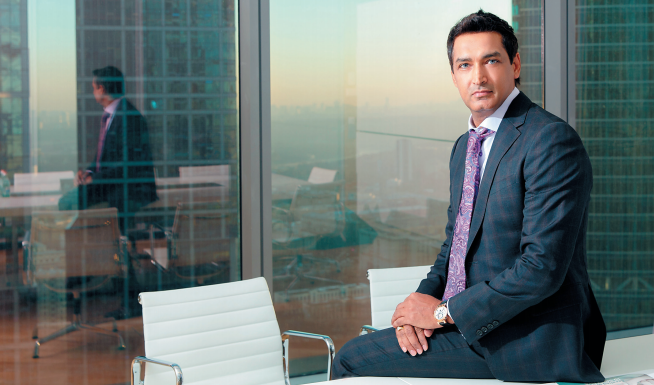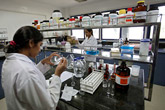Locally produced medicines will dominate Russian market - Indian pharma executive

Vikram Singh Punia, President of JSC Pharmasyntez. Source: Press Photo
How do you evaluate the Russian pharmaceutical market in the current difficult economic environment?
In the short term, we, of course, lost profits, since we import active ingredients, while the prices of our finished product are fixed in rubles, and we have no right to raise them, because our products are included on the VED (Vital and Essential Drugs) list.
In the long term, I feel confident that Western sanctions will have a positive effect on us. First of all, we will become more competitive, due to the fact that all products of foreign companies depend on the value of the dollar and the euro, and we pay rubles for everything, except for active ingredients. Secondly, the sanctions and the economic recession provided the impetus for us to begin our own production of active ingredients, for practically our entire product line.
Just this year, Pharmasyntez will invest about 1.5 billion rubles into the construction of a high-tech manufacturing plant in Bratsk, which will produce active ingredients. We must give due credit to the government, which has become actively involved in our project, and has allocated 300 million rubles towards it.
I feel confident that in the near future, a law will be adopted giving additional preferences to Russian pharmaceutical manufacturers, which produce finished products using their own active ingredients.
It is believed that Indian medicines will be able to replace Western drugs in the Russian market, but there is still a preference in Russia for Western medicine. Why is that?
I would say that Russian medications will eventually replace Western medications, especially when it comes to the VED. People think that Western medicines are better, but those Russian factories, which have received the GMP Certificate from the Ministry of Industry and Trade, produce the same quality products, but at more affordable prices. Therefore, the change of preferences, due to growing confidence in the quality of domestic medicines, will take some time.
Why do Indian drugs occupy such a small share of the Russian market? How can this situation be changed?
I have three specific pieces of advice for the Indian companies. The first – carry out serious work when it comes to the documentation on preclinical and clinical trials, and the formation of the dossier, which would correspond to the requirements set by Russian regulatory authorities.
Second – localize your production in Russia and thus take advantage of the preferences available to local producers.
Third – find a reliable partner who can take over the registration tasks and maybe even the manufacturing (localization) of the product, and thus provide access to the market – promotion and sales. Or open your own fully staffed office in Russia.
Tell us about your company's plans
Statistics show that we are one of the fastest growing pharmaceutical companies in Russia, if not the fastest. Every year we are growing by 70 percent to 100 percent. In an interview with you three years ago, I said that we would reach the level of $250 million by the end of 2015. In fact, if the exchange rate of the ruble remains stable, we will achieve these figures.
I hope we will earn 7.8 billion rubles this year, which, of course, is in line with the plans that we set 3 – 4 years ago. The most ambitious plans can be seen in our portfolio – today we already have three operating plants. Last year we bought a large and first-class factory in Tyumen, which was built by the Chemopharm Company, which is now part of the Novartis Group. It operates 24 hours a day, 7 days a week. In addition, we are currently building three new plants: in St. Petersburg – for oncology products, in Bratsk – to produce active pharmaceutical ingredients, and in Chemkent, Republic of Kazakhstan – for solid dosage forms. This will be our first plant outside of Russia. Of course, the topic of exports is important for us, and in addition to the Russian market, would like to expand, for starters, into the CIS markets, to which we have already started exporting this year.
Thus, as of today, we have three working plants, and three new factories under construction, all of which should start operations in the upcoming year. And, of course, we are planning to reach a half a billion dollars of turnover by 2018.
(This interview was edited and condensed for clarity)
All rights reserved by Rossiyskaya Gazeta.
Subscribe
to our newsletter!
Get the week's best stories straight to your inbox

